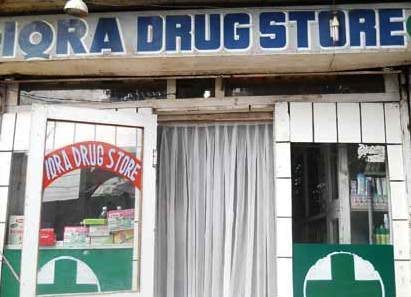His customers often leave their contact numbers and identity proofs to get expensive medicines on credit. But in most such cases, he knows, he cannot retrieve the money. Aliya Bashir reports.

At his chemist shop outside SKIMS Soura, Mohammed Farooq Mir, 40, often gets customers in urgent need of medicine, but with no money to pay for. They leave their address, contact number, sometimes an Identity card, or a Pan card. Mir, the owner of the Iqra Drug Store, obliges them.
He knows that he is not going to get his money. That does not stop him. Instead provides the medicines. “My shop helps both poor and the needy persons with free medicines. But, there are lot of patients who can afford and still they don’t pay,” Mir says with a smile.
In the last three years most of his customers who take medicines on emergency credit, are generally the attendants of people injured in protests. “Mostly people accompanying the injured patient do not think of money. Their priority is to bring the patient to the hospital to save life,” he says while giving three injections to an old wrinkle-faced man.
As the eight salesmen in his shop attend the customers at the crowded shop Mir takes out old dusty ledger books from a drawer. Some have torn-out pages. “These are the patients’ (customers) data of our shop,” he tells me. “Day by day the lists of patients who don’t pay are increasing. But, there is very small number of patients who return our money,” he says while flipping the pages of a ledger.
From identity cards to phone numbers, from pan cards to voter cards, the patients have left in his shop with a promise to contact him later. “From last two months around 400 people have left their contact numbers and addresses with us. But majority of them never returned to clear the pending money,” Mir says.
With a rough calculation Mir says since June 11, they have lent medicines worth one lakh rupees to the bullet injury patients alone. “We have seen hardly 10 percent of people who returned our money in this fresh violence. The rest goes from our pockets,” he says.
The drug store has given out medicines worth five to six lakhs during the two and a half month of curfews and shutdowns. It may seem unusual, but in the time of crisis, when people have little or no money in hand, Mir, makes it sure that his customers get all the medicines they need.
Though his customers are unknown to him, yet at heart, he feels their pain and distress. “We deal with a patient irrespective of his background or financial condition,” he says.
The chemists are essential service and usually allowed to operate, even in very sensitive or tense situations. “We are harassed by the police and CRPF. Our salesmen and distributors are being beaten. Their curfew passes are not entertained.” Mir says while sharing his experience of last 20 years as Kashmir continues to grapple with violence. “We have braved many times the harassment on roads to help out patients at all possible levels.”
For, Mir, helping out a patient in need gives him lot of satisfaction. “If someone is injured by a tear smoke shell or a bullet, he won’t think of taking money along for the treatment. We cannot let a patient die for want of medicines and keep our shop full of medicine in stocks,” says Mir.
When hospitals lack vital medicines and even food for patients, Mir and his employees work hard to keep the medicines in stock. “Three of the critically injured youth from Chanapora, HMT and Batamaloo were in dire need of life-saving drugs and other medicines for the operation. We provided them with every medicine,” Mir’s employees say. “Later all the three teenagers died. We couldn’t muster courage to ask for the money from their family.”
With Kashmir valley reeling under frequent curfews, shutdowns, killings and injuries, Iqra drug store has become a hope for many with no money to buy medicines. “Attendants of injured persons who have no money on hand mostly need antibiotics and disposables, which are sometimes not available in the hospital,” he says.
There are many more chemists adjacent to Mir’s shop. This one has the most customers. His employees say the attendants are often moving around asking for medicines. “When someone is on a ventilator and needs medicines, we just can’t think about business. If we think about profits, then the patient will die,” they say. “God himself takes care of our needs and profits.”















